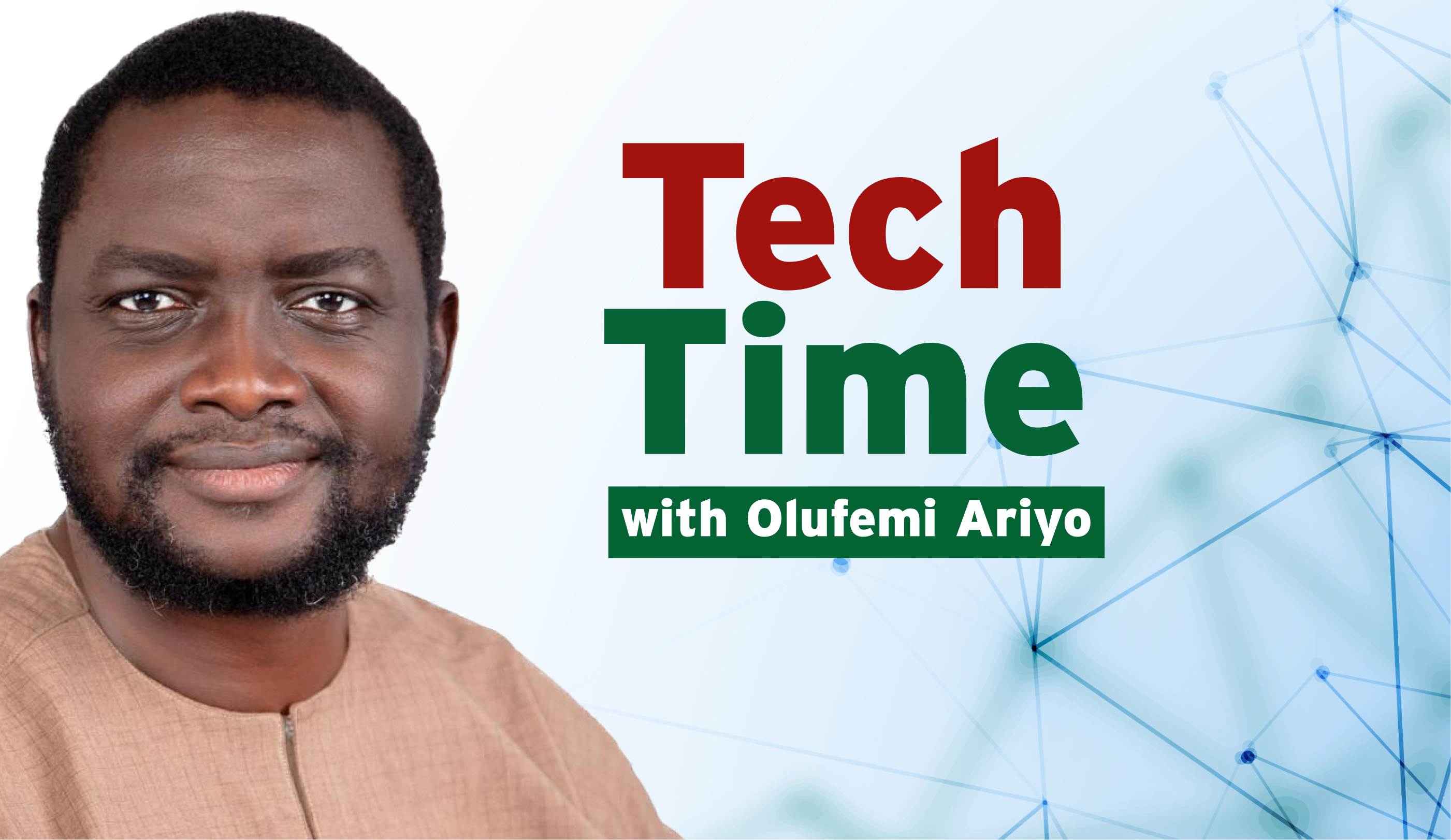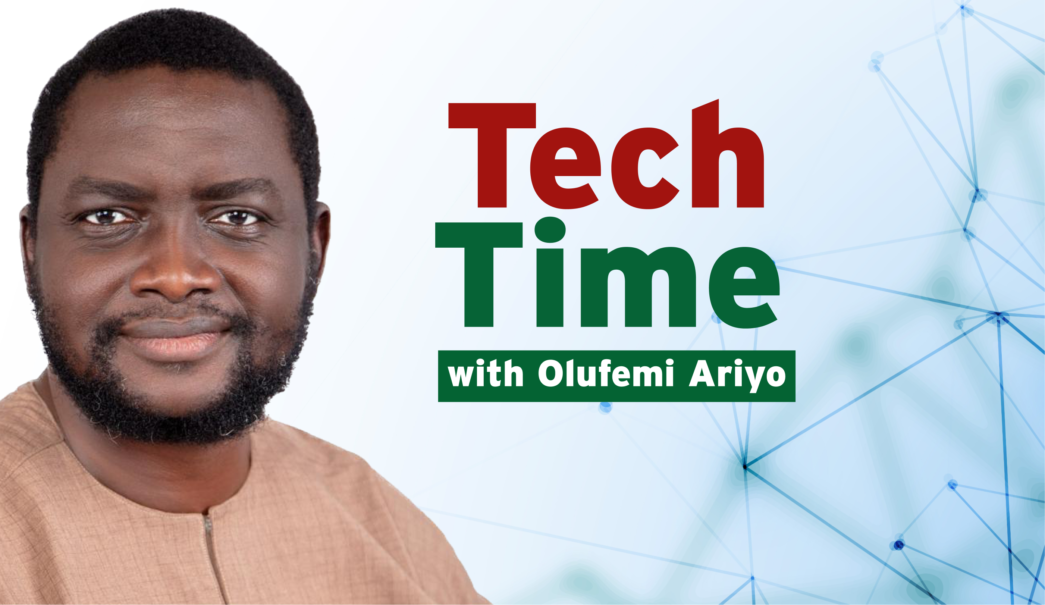Nigeria’s ongoing trust deficit — in its institutions, leadership, and systems — poses a critical threat to national cohesion, democratic participation, and development. This work explores how technology, education, and ethical leadership can be strategically leveraged to rebuild public trust and foster a more inclusive, functional society. Drawing on multidisciplinary literature and real-world case studies, it examines the roots of institutional distrust, including electoral irregularities, police misconduct, judicial inefficiencies, and systemic corruption.
The paper underscores the transformative potential of ethical leadership, defined not by rhetoric but by transparency, accountability, and consistent action. Through examples of public and private leaders demonstrating integrity, it presents ethical governance as a catalyst for restoring citizen confidence. The role of technology is critically evaluated as both a trust enabler — through civic tech, open data, and blockchain for elections — and a potential threat, with misinformation and deepfakes eroding truth in the digital age. In parallel, the research highlights education as the foundation for long-term trust-building, advocating for curricula that prioritise civic responsibility, digital literacy, and ethical awareness.
The paper also emphasises the emerging impact of diaspora engagement and youth activism, positioning them as vital agents of trust reconstruction through innovation, advocacy, and global-local partnerships. Finally, it proposes systemic reforms — including digital accountability mechanisms, inclusive policymaking, and value-driven curricula — to institutionalise trust at scale. By synthesising these interconnected pillars, the thesis presents a holistic framework for rebuilding trust in Nigeria, concluding that sustained progress requires not only functional systems, but a collective cultural shift toward integrity, inclusion, and shared national vision.
- Understanding the Trust Deficit
Greek-American political scientist Harris Mylonas shares the sentiment: ‘You cannot build a nation where people do not believe in the system, or each other.’ Nigeria’s trust deficit is not new, but it is growing deeper. Across the country, citizens routinely express disillusionment with key institutions — the government, the police, the judiciary, even the educational system. Trust, once broken, is difficult to rebuild, especially when its foundations are continually undermined by corruption, inconsistency, and injustice.
Advertisement
In addition, many Nigerians no longer believe their votes count. Electoral irregularities, opaque results, and unkept campaign promises have created a cycle of apathy. Insecurity and police misconduct, most notably highlighted by past protests, have eroded faith in those sworn to protect the people. Courts are often viewed as slow, expensive, or biased — especially by the poor and vulnerable.
A Snapshot of the Trust Deficit
Public trust in key institutions is alarmingly low. The government is widely perceived as corrupt, the police suffer from especially poor credibility based on direct experiences, and while the judiciary retains moderate trust, access to justice remains uneven. Even the education system is losing public confidence, largely due to widening infrastructure gaps. This trust deficit has led to widespread disengagement, with many opting out of civic participation entirely—choosing silence instead of involvement, or emigration rather than pushing for reform. Such conditions pose a serious threat to the health and sustainability of any democracy.
Advertisement
- The Role of Ethical Leadership
Dr. John Maxwell shares the sentiment: “Leadership is not about position; it is about influence — and influence begins with integrity.” To restore trust, Nigeria needs a new kind of leadership — ethical, value-driven, and service-oriented. Ethical leadership means more than moral posturing. It means public servants who lead with transparency, business leaders who build sustainably, and community leaders who uplift others without bias.
Performative vs. Ethical Leadership
Performative leadership is loud—full of promises and headlines—whereas ethical leadership is quieter, grounded in actions and results. Nigerians are no longer swayed by optics, they are watching for consistency. Encouragingly, there are examples of integrity at work. From local government officials delivering real reforms, to Nigerian business leaders like Ndidi Nwuneli and Iyinoluwa Aboyeji shaping ethical entrepreneurship, to diaspora-born professionals returning to lead with purpose — change is brewing.
Advertisement
A New Leadership Profile
Dr. Amina, a diaspora-trained Commissioner for Health, is redefining leadership through ethical governance. By publishing the ministry’s budget monthly, establishing local monitoring boards, and refusing kickbacks, she has demonstrated that transparency and integrity are non-negotiable. These actions have led to a 30% increase in community trust. Her example proves a simple but powerful formula: when sound policy is matched with personal integrity, public trust follows—and citizens begin to believe again.
- Technology as a Trust Enabler — or Destroyer
Trust thrives in environments where information is truthful, timely, and accessible. In Nigeria’s evolving civic space, technology plays a pivotal yet paradoxical role: it can be a powerful enabler of trust—or a formidable force that destroys it. On the positive side, digital platforms such as BudgIT, Tracka, and FixMyStreet are transforming how citizens interact with government institutions. These tools expose budget discrepancies, track public projects, and offer real-time channels for civic feedback. They empower citizens with data, foster transparency, and help bridge the gap between the governed and those in power. Beyond these platforms, technologies like blockchain are being tested to secure electoral processes, while open-source data helps uncover corruption, inflate accountability, and spark informed public discourse.
Advertisement
Yet, the same technologies that promote transparency can also be weaponised to breed misinformation, amplify distrust, and destabilise democratic institutions. Social media platforms such as WhatsApp, Facebook, and X (formerly Twitter) have become fertile ground for fake news, conspiracy theories, and unverified claims that spread at viral speed. AI-generated deepfakes, doctored images, and synthetic voices now pose a real threat to truth itself—blurring the line between reality and deception. These tools are not only being used to manipulate public opinion but also to stoke ethnic and political tensions, erode social cohesion, and weaken electoral integrity.
The Tech Balance
Advertisement
Technology in Nigeria sits on a delicate balance—capable of both restoring and eroding public trust. The challenge lies in ensuring it acts as a bridge, not a barrier, between citizens and institutions. For that to happen, intentional strategies must be adopted. First, digital literacy must be scaled, especially among youth and rural populations, so that users can critically assess the content they consume and share. Second, ethical frameworks and regulatory oversight for AI, data use, and algorithmic transparency must be urgently developed and enforced. Third, continuous support for civic tech innovation is essential—particularly tools that strengthen accountability, enhance citizen participation, and resist manipulation.
Ultimately, technology alone will not rebuild trust—it is the values behind how we design, deploy, and govern it that will determine whether it uplifts democracy or undermines it.
Advertisement
- Education: The Long-Term Trust Strategy
Nelson Mandela once said, “Education is the most powerful weapon which you can use to change the world.” Nowhere is that statement more relevant than in the context of rebuilding trust in Nigeria. A trustworthy society is not simply built on laws or institutions — it is built on people, and people are shaped by what they learn. Education is our most enduring strategy for fostering a culture of trust, accountability, and shared civic values. But for it to be truly transformative, education in Nigeria must evolve beyond the narrow confines of rote learning and technical qualifications. It must become a tool not only for economic advancement but also for ethical and civic empowerment.
Advertisement
From an early age, children must be taught not just how to learn, but why learning matters — and how it connects to their responsibilities as citizens. Trust begins when students are equipped with the tools to ask hard questions, spot misinformation, challenge injustice, and act with integrity. This means integrating critical thinking, empathy, ethics, and digital awareness into every level of education. As they mature, young Nigerians should be prepared not only to pass exams but to lead, collaborate, and innovate in a complex and fast-changing world — equipped with entrepreneurial mindsets, social responsibility, and digital fluency. Education must help them see themselves not as passive recipients of government decisions, but as active shapers of their communities and the nation.
Trust-Based Curriculum Suggestions
To embed trust into the fabric of national consciousness, Nigeria’s education system must undergo a purposeful redesign. Subjects like Civic Responsibility 101, Media Literacy & Fake News, Ethics in Business and Public Life, and Digital Citizenship & Data Rights should become core components of the curriculum. These subjects would provide students with practical tools to identify disinformation, understand their rights and duties, and make ethical choices in both public and private life. Moreover, teaching local governance, anti-corruption history, and community engagement would deepen their understanding of democratic processes and nurture a sense of agency.
Educators, in this vision, are not just instructors — they are the quiet architects of national integrity. Yet for this to work, they must be trained, supported, and valued. A trust-centred education strategy requires investment in teacher development, updated materials, and participatory methods that empower students to think for themselves. When we align the curriculum with the needs of a democratic and digital society — and when we treat education not as a box to tick but as a nation-building tool — we don’t just produce job seekers. We raise citizens. We raise leaders. We raise custodians of trust.
- The Diaspora and Youth as Trust Ambassadors
“The youth are not the problem of Nigeria; they are its assets,” said Dr. Akinwumi Adesina, President of the African Development Bank — a powerful reminder that the future of trust in Nigeria rests not solely in institutions, but in its people, especially its young and globally connected citizens. Across borders and time zones, Nigerians in the diaspora are playing a far more active role than just sending remittances — they are sending back ideas, skills, capital, networks, and values. Many are investing in critical sectors like education, healthcare, fintech, and social enterprise, helping to incubate solutions to challenges they themselves once faced. Their engagement goes beyond charity — it is strategic, long-term, and deeply personal.
Meanwhile, within Nigeria, a new generation is rising — digitally native, socially conscious, and unafraid to challenge the status quo. This is a generation that doesn’t wait for permission to lead. From civic tech platforms like FollowTheMoney, to climate activism through Climate Justice for Africa, to gender advocacy via TechHer, Nigerian youth are building trust by driving transparency, inclusivity, and accountability where traditional institutions have fallen short. When they see gaps in governance, they don’t just protest — they create. Whether it’s launching civic engagement apps, founding impact-driven startups, or organising digital campaigns, they are rebuilding the social contract from the ground up.
Brain Circulation in Action
What we are witnessing today is not just a reversal of “brain drain” — it’s something far more powerful: brain circulation. This refers to the continuous and reciprocal movement of knowledge, talent, and innovation between Nigeria and its global diaspora. From diaspora-funded EdTech hubs in Ogun State, to collaborative training programs between Lagos and London, and mentoring networks that span from Toronto to Abuja, this new wave of global-local partnerships is redefining what it means to be Nigerian in a borderless world. These aren’t one-way acts of generosity — they are mutual investments in trust, identity, and long-term nation-building.
This model of diaspora–youth collaboration is a blueprint for a new kind of civic engagement — one that transcends geography and politics, and prioritises impact, integrity, and inclusion. If given the right support — through policies that encourage diaspora investment, youth participation in governance, and innovation in education — this network can become one of Nigeria’s most powerful trust-building forces. The message is clear: the future is not waiting. It is being built — right now — by young Nigerians at home and abroad, who believe that trust is not inherited, but earned and created together.
- Solutions and Systems: How We Actually Rebuild Trust
Trust is not just a feeling — it is a measurable outcome of systems that work and of people who make them work with consistency and accountability. Vision without structure breeds disillusionment; ambition without institutional reform is unsustainable. To rebuild public trust in Nigeria, we need a deliberate combination of systems, safeguards, culture, and leadership that not only promote integrity but also make it the most viable path forward. Rebuilding trust is not about isolated gestures — it is about institutionalising honesty, mainstreaming transparency, and rewarding responsibility over rhetoric or hustle.
What Can Be Done?
First, robust accountability mechanisms must be central to reform. This includes enforcing mandatory asset declarations for all political office holders, with open access to the public. When political leaders are required to disclose their financial interests, it sets a precedent for transparency and helps deter illicit enrichment. Complementing this, citizen-led scorecards — independent performance evaluations of ministries, departments, and agencies — can be a powerful feedback tool. These scorecards, if data-driven and publicly visible, shift accountability from periodic elections to ongoing civic oversight.
Second, we must invest in digital civic infrastructure. Nationwide implementation of open budgeting portals would empower citizens to monitor how public funds are allocated and spent — from federal budgets to local government expenditures. Secure and inclusive digital identity systems, when responsibly designed and linked to essential services, can reduce fraud, streamline service delivery, and foster a more trusted relationship between citizens and the state. Similarly, a national complaints registry or service rating platform could allow citizens to assess public services in real-time, offering both recognition and accountability.
Third, national values and ethics education must be reimagined as a long-term trust strategy. Starting from primary school through to university, curricula should consistently incorporate subjects that promote civic responsibility, ethics in leadership, anti-corruption principles, and emotional intelligence. But beyond textbooks, students should participate in service learning programs — civic projects that connect classroom knowledge with community impact. When young Nigerians experience the link between integrity and impact, trust becomes more than an abstract value — it becomes a way of life.
Fourth, youth inclusion in governance must move beyond tokenism. While policies like “Not Too Young To Run” have opened the door for younger candidates, real inclusion means seats at decision-making tables, access to campaign financing, leadership training, and clear mentorship pathways into public service. Young Nigerians are not waiting to lead — they already are, through innovation, activism, and enterprise. What they need is systemic access, not just symbolic applause.
Fifth, the private sector and civil society must actively participate in rebuilding the trust fabric. When businesses and NGOs lead by example — through transparent reporting, ethical hiring, community engagement, and impact-first metrics — they not only earn public trust but model the kind of integrity that citizens expect from the state. In contexts where government capacity is weak or compromised, these actors can fill gaps, set higher standards, and show what responsible leadership looks like.
The Trust Triangle: A Framework for Action
All of this points back to a simple but powerful model: The Trust Triangle, which is built on three interconnected pillars — Ethical Leadership, Education, and Technology. At the top of the triangle sits ethical leadership, which anchors a culture of integrity, fairness, and long-term thinking. On one side, education builds understanding, instills values, and prepares citizens to lead and question with purpose. On the other, technology provides the infrastructure for transparency, civic participation, and digital accountability. When these three forces align and reinforce one another, they create a strong, resilient foundation on which public trust can be built, rebuilt, and sustained.
Rebuilding trust in Nigeria is not a single reform or one bold idea. It is a systemic transformation — a combination of policies, platforms, education, and leadership that consistently deliver justice, equity, and opportunity. It is not easy. But it is possible — and it starts with those willing to design and defend systems that work for everyone.
Conclusion: Trust Begins With Us
Rebuilding trust in Nigeria is not a quick fix—it demands vision, patience, sacrifice, and above all, a collective commitment. While the road may be long, progress is possible. Every act of integrity counts: a teacher who instills honesty, a leader who chooses transparency, a young person who stays to build rather than leave. These everyday choices, made by individuals across society, are the building blocks of a more trustworthy and united nation.
What is one way you are helping to rebuild trust—in your community, your workplace, or even your digital space? Share it. Live it. Multiply it. Change starts with action, and trust begins with you.
Thank you for investing your time and attention. If you would like to explore more of my curated thoughts, feel free to follow me on Medium: https://medium.com/@roariyo and LinkedIn: https://www.linkedin.com/in/olufemiariyo/ or send an email to [email protected]













